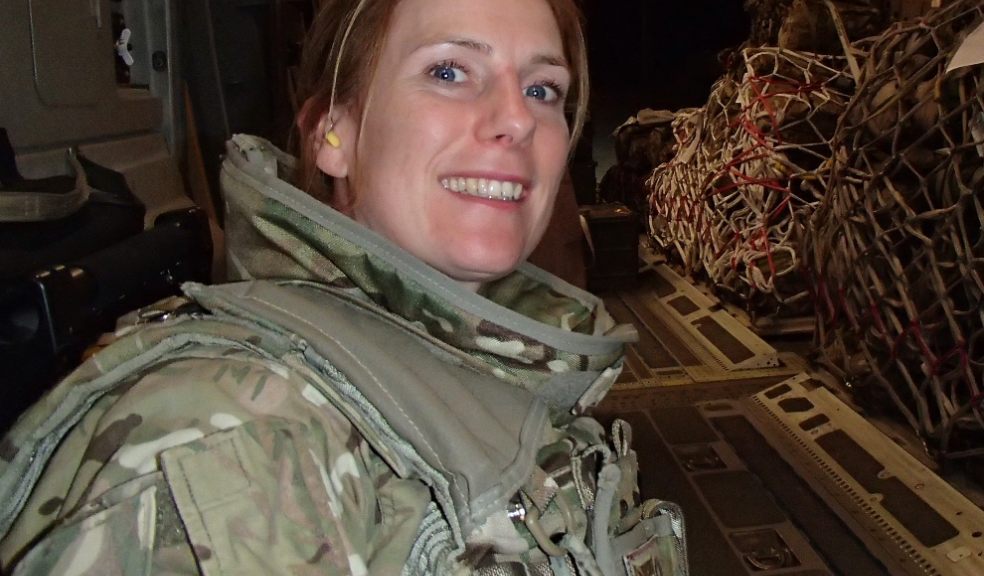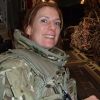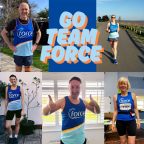
Veterans to benefit from Janine’s experience
With 25 years in the Royal Navy and four tours of Afghanistan behind her, Janine Whitley is ideally suited to her new role as Veterans Clinical Advisor (South-West) for Armed Forces charity Help for Heroes.
Whitley, 43, will be looking after wounded and injured veterans from Bristol, Somerset, Devon, Cornwall, and the Isles of Scilly in her new position and brings with her an impressive CV.
In addition to Afghanistan, the Exeter-based nursing specialist also served around the world in Gibraltar, the Falkland Islands, Jordan, Norway, and the Philippines, as well as spending time based in the Queen Elizabeth Hospital (QE), Birmingham, Queen Alexandra Hospital, in Portsmouth and working for 3 Commando Brigade Royal Marines, in Chivenor, Devon.
Originally from Sidcup, in Kent, she joined the Royal Navy straight from school as a communicator, aged 16. As a Wren she served on both HMS Exeter and HMS Liverpool, before obtaining her qualifications as a nurse, as it was always her ambition to join Queen Alexandra’s Royal Naval Nursing Service.
Having joined the nursing branch in 2002, she qualified in 2005 and worked mainly in Derriford Hospital, Plymouth. There then followed four tours of Afghanistan, including during the early phase of Operation Herrick, ‘Herrick 5’, when, she laughed, “the hospital was like something out of the TV series Mash”.
She recalled: “On my last tour we shut down the hospital in Bastion, ready for the handover back to the Afghan people – which was good to see it to the end. I was also nurse in charge of a small surgical team sent out on a humanitarian aid mission to the Philippines following Typhoon Haiyan, in 2013, where we had a small surgical facility on HMS Illustrious.
“I’ve continued my story from ‘Herrick 5’ really, having worked with wounded or injured military personnel at every stage of their journey. On tour, you just deal with what’s in front of you, you don’t have to deal with the emotional side of it.
“When I worked on the wards at QE was when the families started to be involved and brought another really important dynamic. It is at that early stage where you see – and can influence – the start of the patient’s, and their family’s, recovery, and where you see the individuals change their mindset.”
Her last role in military nursing saw her return to Derriford as a deputy matron of the military unit at Joint Hospital Group (SW), before she decided to take a break from the profession, volunteering in resettlement for a veterans’ hub in Exeter, before accepting a job there for a year.
One of the attendees at a Leavers Link SW networking event she co-hosts for service leavers – which linked service people up with businesses – was her former commanding officer in Afghanistan, Carol Betteridge, now Help for Heroes’ Head of Clinical and Medical Services.
A discussion and a series of interviews later, Whitley finds herself, once again, delivering the health and mental wellbeing support of former military personnel, albeit in a different way, with more than 40 veterans currently on her books and more expected as restrictions continue to ease.
She said: “I’m a clinical advocate for the charity’s veterans; I determine what the need is and refer them to the necessary medical support teams, removing barriers to their care, liaising with other charities or services, and contacting GPs or consultants to request specialist referrals.
“It’s not hands-on clinical and we’re not a crisis service – but we can certainly make a difference in their care pathways, whether it’s the NHS or other specialist organisations.”
She added: “I’m just now starting to introduce myself to all my beneficiaries in the south-west. Everybody at Help for Heroes is very friendly and approachable, and, because I know some of the clinical team already, it’s just like going to another Naval job. And it’s familiar because all the language is the same, it’s all military talk.
“Most of all I’m looking forward to helping people. If I can remove some of those barriers to care and recovery, just by intervening on their behalf, that would be excellent. Nobody can do anything unless they want to do it; so, we’re there to empower and support the veterans and say ‘for this to happen you’re the one who can control it’ and help provide them with the skills and health care coaching to achieve it.
“I don’t just assess their health, I assess them holistically: I’ll look at their home; their ability to cope – because veterans find it easy to say ‘things are great’ when they’re not; how are they? What are they doing? Are they speaking to their GP? The GP is key in all of this, for without the GP they can’t be referred anywhere. I want to have a good relationship with the GPs of all my veterans.”
Her background will prove invaluable in the role. In the 14 years Help for Heroes has been supporting ex-service personnel, it’s become clear that having a military career and experience helps enormously when it comes to bridging the gap between veteran and ‘carer’. And having a clinical advisor with Whitley’s experience will only be of huge benefit for both the Charity and its veterans.
Help for Heroes believes those who serve our country deserve support when they’re wounded. Every day, men and women have to leave their career in the Armed Forces as a result of physical or psychological wounds. The Charity helps them, and their families, to recover and get on with their lives.
Help for Heroes relies on the spirit and generosity of the great British public. It has already supported more than 26,500 people and will not stop until every wounded veteran gets the support they deserve.
To access support from Help for Heroes go to helpforheroes.org.uk/get-support, email getsupport@helpforheroes.org.uk or call 0300 303 9888.


















